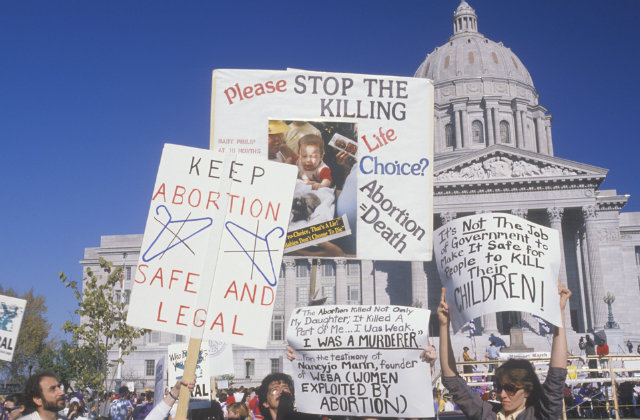 Last Friday, the Solicitor General of the United States (“SG”) filed a petition for certiorari in Hargan v. Garza, and it’s beyond weird.
Last Friday, the Solicitor General of the United States (“SG”) filed a petition for certiorari in Hargan v. Garza, and it’s beyond weird.
First, some background facts.
In September, “Jane Doe,” an undocumented 17-year-old, tried to enter the United States alone and was detained at the border in Texas by the Department of Health and Human Services (“HHS”). During her detention, Jane learned she was pregnant, decided to terminate the pregnancy, and under Texas law, was required to undergo prior counseling. HHS prevented Jane from receiving the counseling, and Jane, via her guardian ad litem, sued. The court sided with Jane and ordered HHS to stop interfering. Jane then got her counseling and her abortion. Nine days later, the SG filed a petition for certiorari asking SCOTUS to review the District Court’s (now completely moot) decision.
Here are just a few of the serious abnormalities:
- The whole thing is moot. A major rule of jurisprudence is that courts don’t get involved with cases that are already moot. Jane Doe already got her abortion, so there’s really nothing all that important for SCOTUS or any other court to decide now. Plus, no one is really quite sure why HHS cared so much. Had Jane been over 18, she’d have been detained by ICE instead of HHS; not only would ICE not have interfered with Jane’s abortion, but it also would have provided her with free transportation to her appointments. Same deal if Jane had been a prisoner and the Bureau of Prisons had been in charge.
- No one on the government side seems to really be on board. A petition for certiorari would normally be signed by lawyers for HHS, but this one isn’t. It’s only signed by the Solicitor General, four political appointees at DOJ, and a couple of lawyers to have been sent to the Office of the Assistant Attorney General. The absence of such signatures is a major departure from what’s typical, and may indicate dissention among the people involved here. In a recent blog post in which he detailed the overwhelming abnormality of this petition, Georgetown Law Professor and former Deputy Assistant Attorney General Marty Lederman explained:
“… most tellingly, no Assistant to the Solicitor General signed the brief, although there are several Republican and conservative attorneys in that Office. (By contrast, OSG Assistants have, for instance, signed the Office’s travel ban and Masterpiece Cakeshop briefs, as one would expect—those briefs are certainly controversial, but they’re nothing like the Hargan petition in terms of deviation from established norms.) There are two possible explanations for this absence. Either the Solicitor General declined to assign the case to any Assistant–which would be a significant deviation from ordinary practice–or (more likely) an Assistant worked on the petition but declined to sign it. As far as I’m aware, the absence of an Assistant’s signature on a petition or merits brief is very rare–perhaps unprecedented in recent decades.”
- The legal argument is missing. Appellate litigation is all about reexamining the lower court’s decision and arguing that it was wrong because the court misinterpreted the law. In the SG’s brief, there’s no such argument at all. No analysis of Jane Doe’s constitutional rights, no legal precedent, no discussion of a circuit-split or of the basis for SCOTUS review.
- The brief attacks Jane Doe’s lawyer. Instead of making a strong legal argument, HHS’ petition goes on the offensive, and suggests that Jane’s lawyer should be disciplined for lying to the court in the days leading up to the abortion. The attacks seem sketchy at best, with little supporting argument or precedent.
As Professor Lederman pointed out, it’s not hard to guess why DOJ or SG lawyers might have declined to be publicly associated with this case: “there are serious questions whether the brief meets the high standards that OSG and DOJ have long insisted upon and that the Court has come to expect from the federal government.” Lederman went even farther, opining that the SG’s motivation for filing this brief is suspect at best:
“I’ve never seen anything like it, especially not emanating from the Office of the Solicitor General… Indeed, it is difficult to avoid the conclusion that it is fundamentally a press release, for an audience other than the Justices of the Supreme Court itself. I hope I am mistaken about that—but it’s difficult to come up with any other explanation for it.”
This is an opinion piece. The views expressed in this article are those of just the author.